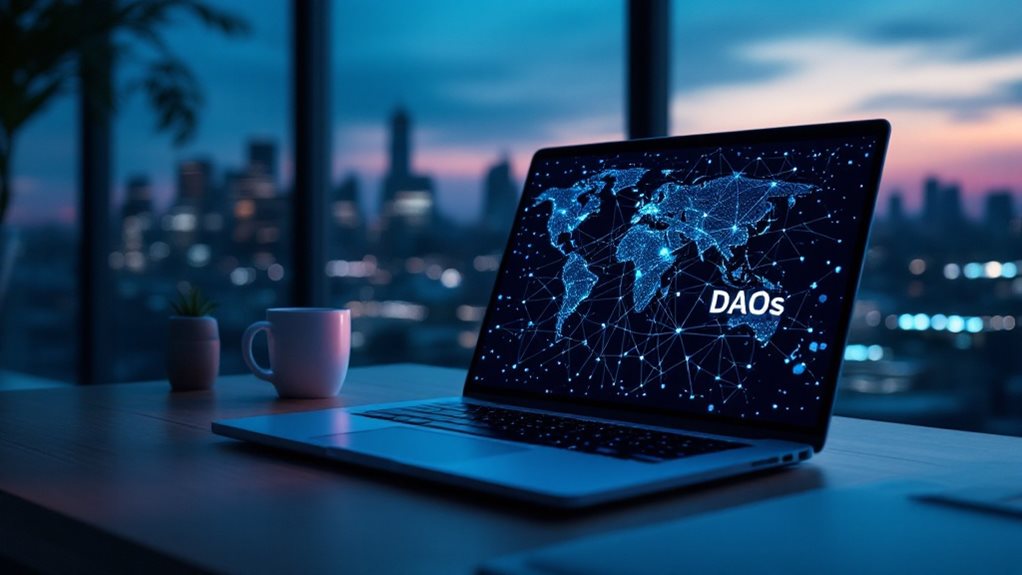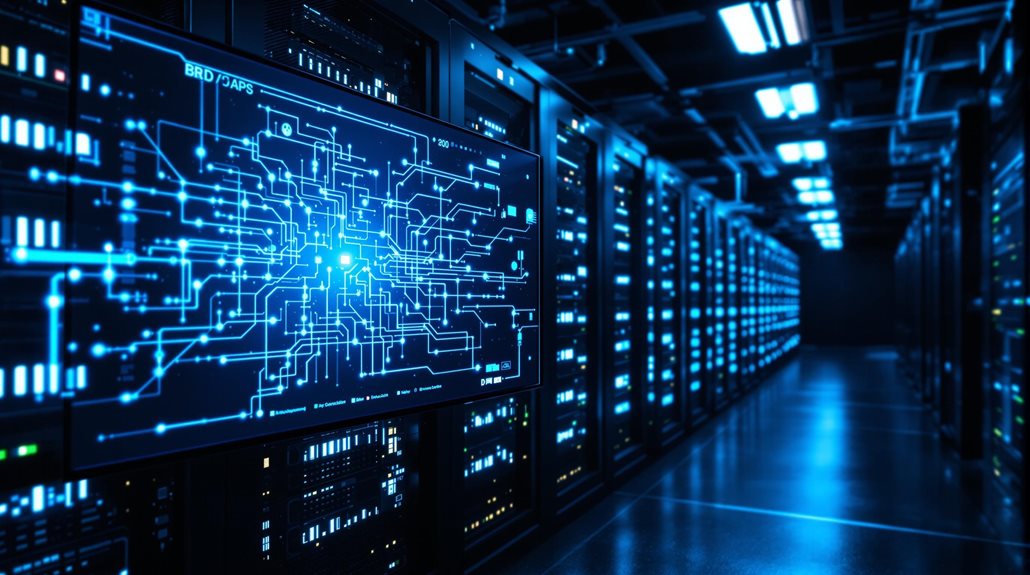A DAO (Decentralized Autonomous Organization) is a digital community that operates on blockchain technology without central leadership. It's run by its members who use special tokens to vote on decisions and share in the organization's success. Smart contracts automatically enforce the rules and record all actions on the blockchain. DAOs are changing how online groups work together, with examples like ConstitutionDAO raising $47 million in just three days. The future of these digital organizations holds many possibilities.

A DAO, or Decentralized Autonomous Organization, is a digital community that runs on blockchain technology without a central leader or authority. It's like a crypto-cooperative where members work together to make decisions and share in the organization's success. Instead of having bosses and managers, DAOs use special computer programs called smart contracts to establish rules and make sure everyone follows them. The voice of each member matters equally in the decision-making process.
These smart contracts are the backbone of how DAOs work. They're stored on the blockchain, which means all actions and decisions are recorded permanently and can't be changed. Members get special tokens that give them voting power and a share in the organization's rewards. When it's time to make a decision, members use their tokens to vote on different proposals. The multi-sig wallet system adds an extra layer of security by requiring multiple approvals for transactions.
The beauty of DAOs lies in their transparency and efficiency. Since everything happens on the blockchain, anyone can see what's going on and verify decisions. There's no need for middle managers or expensive administrative staff, which helps keep costs down. Plus, people from anywhere in the world can join and participate, making it easier for folks to work together across borders. A recent example of this global collaboration was seen when ConstitutionDAO raised $47 million in less than three days.
DAOs also offer better security than traditional organizations in many ways. The blockchain technology they're built on is tough to hack, and because there's no central point of control, it's harder for bad actors to take over. The rules are enforced automatically by smart contracts, so there's less chance of human error or manipulation.
However, DAOs aren't without their challenges. They face questions about how they fit into existing legal systems, and some regulators worry about whether DAO tokens should be registered as securities. There's also the challenge of making sure power doesn't end up concentrated in the hands of a few large token holders.
Getting the governance structure right is another important consideration. While DAOs aim to be fully democratic, they need to balance quick decision-making with fair representation of all members' interests. The community needs to work together to create clear rules about how proposals are made and voted on.
Despite these challenges, DAOs represent an innovative way to organize people and resources in the digital age. They're showing how blockchain technology can create more transparent, efficient, and democratic organizations. As the technology continues to develop, DAOs are likely to play an increasingly important role in how people collaborate and make decisions together online.
Frequently Asked Questions
How Much Money Do I Need to Join a DAO?
The cost to join a DAO isn't fixed – it varies a lot between different organizations.
Some DAOs don't cost anything to join, while others might require buying tokens or cryptocurrency.
Entry fees can range from $100 to over $50,000.
Many DAOs need members to hold specific tokens, usually between 1-1000 tokens.
There are also free ways to join some DAOs, like contributing work skills or getting invited by current members.
Can DAOS Be Hacked or Compromised?
Yes, DAOs can be hacked. The most famous example happened in 2016 when hackers stole $60 million from a DAO called "The DAO." They exploited a flaw in the smart contract's code.
DAOs face several security risks including recursive call attacks, re-entrancy exploits, and flash loan attacks.
They're also vulnerable to governance attacks where bad actors can manipulate voting by borrowing large amounts of tokens or creating multiple wallets.
What Happens if a DAO Proposal Fails to Pass?
When a DAO proposal fails to pass, the smart contract doesn't execute and no changes are made. The DAO keeps operating as it did before.
Failed proposals are usually archived for reference, and members can learn from what didn't work. Some DAOs let people submit modified versions of failed proposals later.
While rejection might disappoint some members, it's a normal part of the governance process and helps DAOs understand their community's preferences better.
Are DAOS Legally Recognized Entities in Different Countries?
DAOs' legal status varies worldwide. Some countries officially recognize them, while others don't.
Wyoming, Vermont, and Tennessee in the U.S. allow DAOs to operate as legal entities. The Marshall Islands and Malta have passed specific DAO laws. Switzerland accommodates DAOs under existing regulations.
However, many countries still lack clear rules for DAOs, which creates uncertainty. The trend is moving toward more countries developing DAO-specific legislation and frameworks.
How Do I Create My Own DAO From Scratch?
Creating a DAO from scratch follows several key steps.
First, there's defining the DAO's purpose and goals through a white paper.
Next, comes designing the tokenomics and governance rules.
Then, developers build smart contracts on a blockchain platform like Ethereum.
Finally, there's community building through social media and communication channels.
The process typically takes several months and requires technical knowledge of blockchain development and smart contracts.





